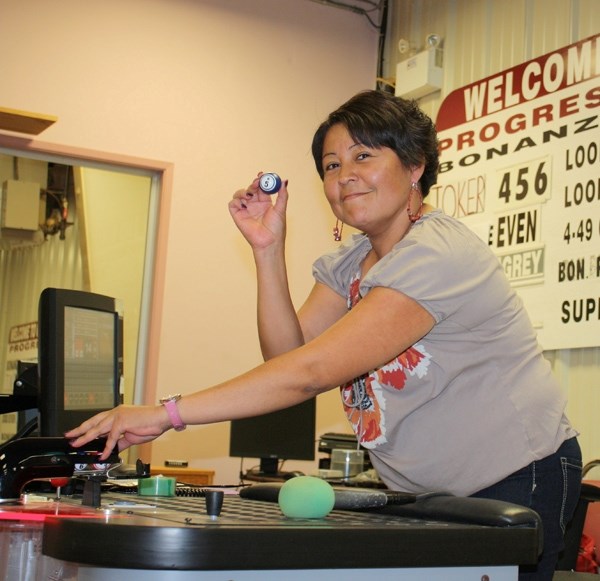Everybody dreams of hitting it big with a lucky lottery ticket. In Guelph and every other community in Canada, they are available in a dazzling array of choices, in just about every kind of retail outlet you can think of.
Young people might find it hard to believe that at one time the only lottery ticket you could buy was the Irish Sweepstakes ticket, and because they were illegal you had to know someone who was selling them.
Then there is bingo, the game that is synonymous with church and community halls, senior centres and carnival sideshow amusement tents. The image of the grandmother with half-a-dozen bingo game sheets in front of her, along with a pile of marker discs, a cup of coffee, (and years ago in many cases a package of cigarettes), waiting for the caller to announce the letter and number she needs for a “BINGO!” has become almost iconic.
The game, which was once called beano, had its origins in Renaissance Italy, but the version we know today dates back to 1929 and an American entrepreneur named Edwin Lowe.
By the time of the Second World War, it was one of the most popular games in North America. During the conflict, bingo and a wide range of raffles and lotteries became a principal means of raising funds for war-related charities and other causes. Besides cash, prizes included houses, cars, all-expense-paid vacations, tires and other items that were hard to get due to wartime rationing and shortages.
Back then, as now, when Christmas approached, people hoped for a timely win that would make for an extra special windfall.
Then, with the war over and Christmas of 1945 just around the corner, came news that was a bombshell for lottery players and bingo lovers. The Ontario government announced a crackdown on bingo and lotteries. “Local Groups Hard-Hit by Outlawing of Bingo” read a headline in the Guelph
Mercury of Dec. 19. “7 GUELPH ORGANIZATIONS MUST CURTAIL ACTIVITIES: Charitable Bodies to Feel Effects of Rule.”
The rumblings had started the previous September when the Canadian Council of Churches complained lotteries were a form of gambling and therefore immoral – although the churches said their own (occasional) bingo games were acceptable. Other social watchdogs expressed concern that many of the lotteries and raffles were operated by “professional” promoters and even racketeers, and that little of the funds they raised actually went to legitimate charities.
There was danger, they said, the “gambling instinct” and the desire to get something for nothing would run “without curb,” resulting in harm to the community. A principal fear was that low-income people were spending money they really couldn’t spare on the million-to-one odds of striking it rich with a lottery win.
Ontario Attorney General Leslie Blackwell, following the example of anti-lottery legislation in Manitoba and British Columbia, let it be known that the game was up for “those who would line their own pockets while paying a minimum amount to the groups which sponsored them … only exceptions will be occasional bingos for religious or charitable purposes, which will be allowed to carry on.”
According to the Mercury, most Guelph citizens were in favour of the crackdown. They approved of church and service club bingos, which were always well-attended. Those events had come to be regarded as enjoyable diversions for young and old alike, especially in the winter. But they
allegedly did not feel the same about the “big prize” lotteries which many people believed were “rackets.”
The Mercury told of an incident “in a nearby city” in which 60,000 one-dollar tickets had been sold, the big prize being a house valued at $10,000.
Proceeds were supposed to go to a worthy cause, but the article suggested that the people who bought tickets were being scammed.
The Mercury was in agreement with the Toronto Globe and Mail editorial which said, “The Attorney General’s decision to end illegal lotteries by the enforcement of the Criminal Code should receive the support of all those who, in giving to charitable causes, have no wish to line the pockets of the shady promoter."
The Attorney General’s office didn’t specify a time for ending bingos or Christmas raffles, which some legal experts claimed did not even come under the Criminal Code. The Mercury speculated they had until the New Year before any ban would become effective. But the operators of big prize lotteries were warned that they now carried on at their own risk.
Penalties included heavy fines and up to two years in jail. Persons buying the tickets could also be prosecuted. Newspapers and other publications could be charged for carrying advertising related to the now-illegal lotteries.
Chief Constable Harold Nash of the Guelph Police Department told the Mercury, “It will be necessary to make a survey of each organization, and the method of conducting bingos or lotteries, before we take action.” He said it would be unfair to issue a blanket order closing all bingos until application of the regulations to each individual organization had been considered.
Nash added that as far as he knew, proceeds from all of the bingos operating in Guelph had been used for charitable purposes.
Today lotteries are big business. Not only do governments allow them; they get in on the action themselves. At this time of year, people don’t just buy tickets in hope of winning some Christmas money; they buy tickets to be given away as gifts. Some people call that a gift of hope, others say that if
the ticket doesn’t win a prize, it’s a gift of nothing.
Of course, bingo is still with us. It’s still popular with young and old, even if we do tend to associate it with grandmas and aunties.



